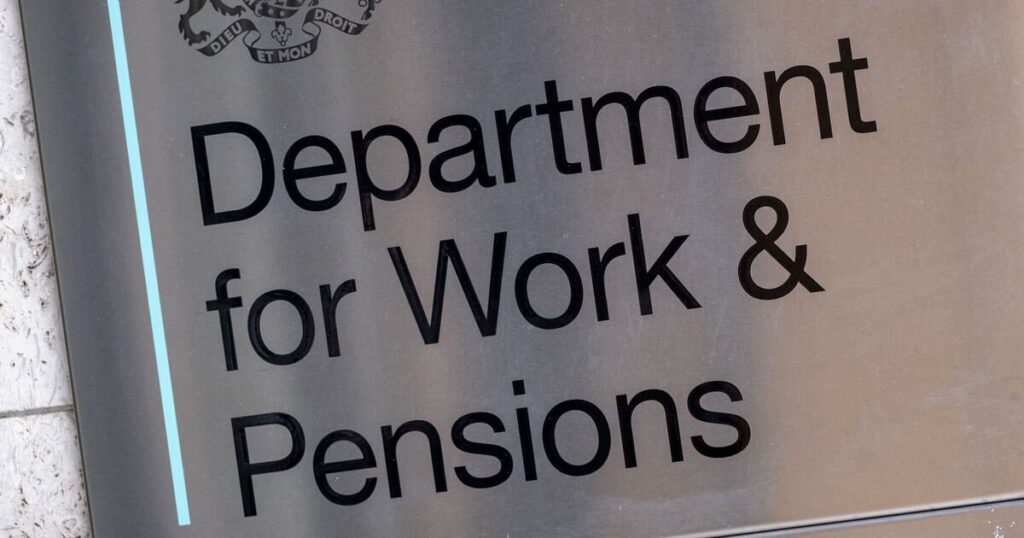
People born after April 1960 face having their State Pension payment pushed back thanks to an age rule change. The Department for Work and Pensions (DWP) has confirmed it is increasing the State Pension age from 2026 and this change will be phased in gradually over the course of a year. Currently, the age at which men and women can claim their State Pension in the UK is 66, but from next year it will rise to 67. The current age of 66 was implemented between December 2018 and October 2020, having increased from 65, but now a further hike will take effect between 2026 and 2028.
The age increase to 67 will be implemented in phases and will affect when people born between April 6, 1960, and March 5, 1961, can claim their State Pension. As people born between these dates fall into the transition period, it means some will be closer to age 66 when they get their State Pension, while others will be almost 67 by the time they get their first payment.
The age change will still allow these people to get their State Pension at age 66, but they won’t be able to get it immediately after their 66th birthday. The phased age increase means that people will instead reach State Pension age at 66 years and a specified number of months, so their payment will effectively be pushed back.
The DWP said: “The Pensions Act 2014 brought the increase in the State Pension age from 66 to 67 forward by 8 years. The State Pension age for men and women will now increase to 67 between 2026 and 2028.
“The government also changed the way in which the increase in State Pension age is phased so that rather than reaching State Pension age on a specific date, people born between 6 April 1960 and 5 March 1961 will reach their State Pension age at 66 years and the specified number of months. For people born after 5 April 1969 but before 6 April 1977, under the Pensions Act 2007, State Pension age was already 67.”
The DWP has set out the following timetable for the increase in State Pension age from 66 to 67, which will take place from 2026 to 2028:
- Born between April 6, 1960 and May 5, 1960 – Reach State Pension age at 66 years and 1 month
- Born between May 6, 1960 – June 5, 1960- Reach State Pension age at 66 years and 2 months
- Born between June 6, 1960 – July 5, 1960- Reach State Pension age at 66 years and 3 months
- Born between July 6, 1960 – August 5, 1960 – Reach State Pension age at 66 years and 4 months
- Born between August 6, 1960 – September 5, 1960 – Reach State Pension age at 66 years and 5 months
- Born between September 6, 1960 – October 5, 1960 – Reach State Pension age at 66 years and 6 months
- Born between October 6, 1960 – November 5, 1960 – Reach State Pension age at 66 years and 7 months
- Born between November 6, 1960 – December 5, 1960 – Reach State Pension age at 66 years and 8 months
- Born between December 6, 1960 – January 5, 1961 – Reach State Pension age at 66 years and 9 months
- Born between January 6, 1961 – February 5, 1961 – Reach State Pension age at 66 years and 10 months
- Born between February 6, 1961 – March 5, 1961 – Reach State Pension age at 66 years and 11 months
- Born between March 6, 1961 – April 5, 1977 – Reach State Pension age at 67
Everyone born after April 5, 1977, will get their State Pension at age 67, although a further increase is planned for between 2044 and 2046 which will see the age rise to 68, meaning younger generations face an even longer wait to get their payment.
The DWP says the age increases take a “range of factors” into account, including life expectancy, and any changes must go through Parliament before becoming law.
While there are no plans to revise the timetable for the age increase from 66 to 67, the timetable for the age increase from 67 to 68 “could change” as a result of review.
 Latest World Breaking News Online News Portal
Latest World Breaking News Online News Portal






